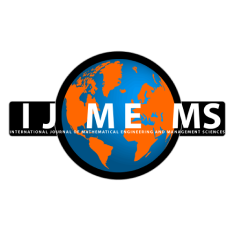Pooja Yadav
Department of Mathematics, Amity University, Gurugram, Haryana, India.
Chirag Dhankhar
Department of Mathematics, Amity University, Gurugram, Haryana, India.
Ashu Redhu
Department of Mathematics, Amity University, Gurugram, Haryana, India.
Reeta Bhardwaj
Department of Mathematics, Amity University, Gurugram, Haryana, India.
Kamal Kumar
Department of Mathematics, Amity University, Gurugram, Haryana, India.
DOI https://doi.org/10.33889/IJMEMS.2025.10.4.054
Abstract
The rapidly growing population, urbanization, and advancements in technology have led to a continuous increase in both the quantity and diversity of solid waste (SW). The management of SW stands out as an urgent concern, as the growing volume of garbage places enormous strain on the environment. Addressing this issue necessitates the use of solid waste management methods (SWMMs). Therefore, in this paper, we propose a new Multiattribute group decision-making (MGDM) method under the q-rung orthopair fuzzy numbers (q-ROFNs) environment to select the optimal sustainable SWMM for effective management of SW. Firstly, we present new operational laws of q-ROFNs based on Sugeno-Weber’s norm, which overcomes the shortcomings of existing operational laws of q-ROFNs. After that, based on proposed operational laws of q-ROFNs, we propose the q-rung orthopair fuzzy Sugeno-Weber prioritized weighted arithmetic (q-ROFSWPWA) aggregation operator (AO) for aggregating the q-ROFNs, which considers the priority relationship among aggregating q-ROFNs. Moreover, we propose a new MGDM method for the q-ROFNs environment based on the proposed q-ROFSWPWA AO and EDAS technique. Furthermore, we consider a case study of selecting the optimal SWMM to demonstrate the proposed MGDM method. We also present a comparative analysis of the proposed MGDM method with existing MGDM methods.
Keywords- Solid waste, q-ROFNs, Sugeno-weber norms, Decision making, Prioritized operator.
Citation
Yadav, P., Dhankhar, C., Redhu, A., Bhardwaj, R., & Kumar, K. (2025). Solid Waste Management using q-rung Orthopair Fuzzy Decision Making based on Sugeno-Weber Prioritized Operator and EDAS Technique. International Journal of Mathematical, Engineering and Management Sciences, 10(4), 1123-1155. https://doi.org/10.33889/IJMEMS.2025.10.4.054.



